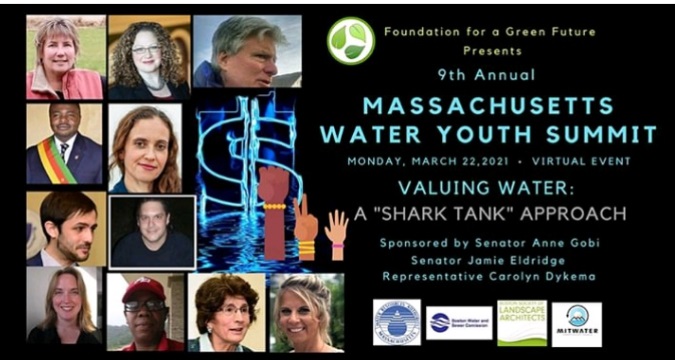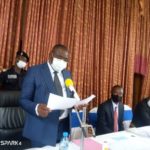The young Cameroonian Member of Parliament was one of the panelists at the 9th Annual Massachusetts Water Youth Summit organized by the Foundation for a Green Future.
In his presentation Hon, Agho Oliver said: “…the harshness of the dry season access to water remains a major preoccupation around the globe and Cameroon as well.” “Covid 19” he added “has skyrocket the need for water given that water is one of the barrier measures that those who cannot afford facemask can easily afford if it is accessible to all.” To Hon. Agho Oliver, improving access to water should start from protecting water sources which to him are “sources of life given that water is life”. Harping on the situation in Cameroon, he said government provides water schemes to communities yet community beneficiaries hardly take care of the water sources. He also mentioned the invasion of water catchment areas by farmers and rampant grazing in around water sources. “Lash and burnt [known as Ankara]” he reiterated also is also one of the drivers of climate change and contributes significantly in polluting water sources. The personal contribution of Hon. Oliver has been planting of trees to restore water sources before he became Member of Parliament. “With the ongoing crisis and Internally Displaced in the North West Region, there is the need for us to improve on access to water in the North West Region”, he added. At the end of the presentation Hon. Agho Oliver expressed gratitude to Dr. Karen Weber, of the Foundation for a Green Future for inviting him to talk to youths and learn as well.
The 9th Annual Massachusetts Water Youth Summit was a virtual event sponsored by Senator Ann Gobi, Senator Jamie and Representative Carolyn Dykema. Participants were made up of youth from USA, France, India, Cameroon, Kenya, Rwanda, Malaysia and South Africa.
March 22 was largely observed around the globe as World Water Day, a day which underlines the significance of fresh water in our lives. 2021 edition was commemorated under the theme: Valuing Water. The United Nations predicts that approximately 2. 2 billion people don’t have access to safe drinking water.
Jude VIBAN




